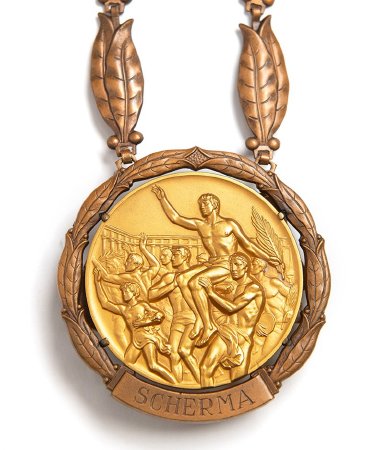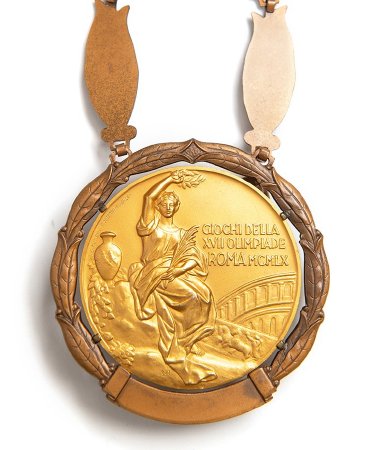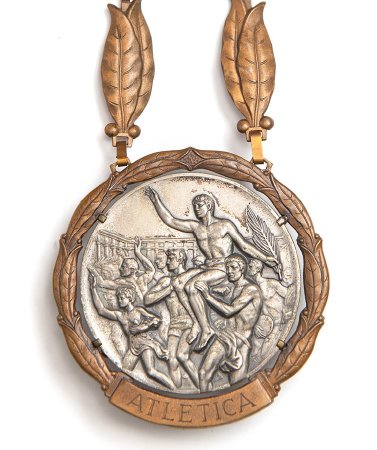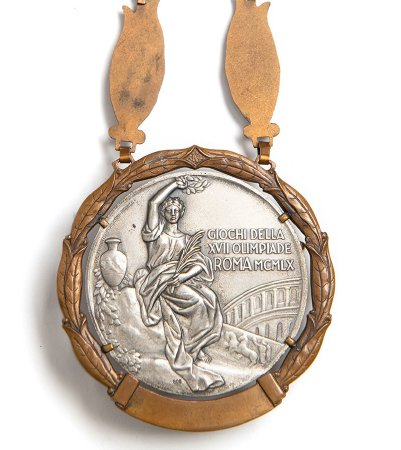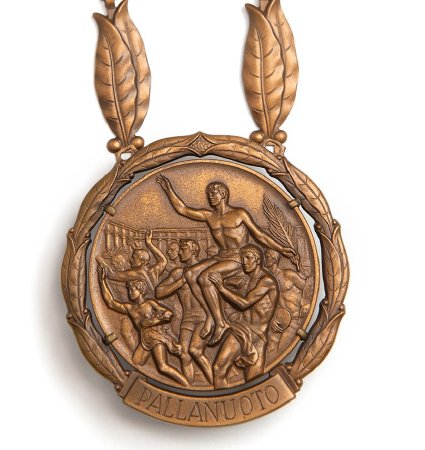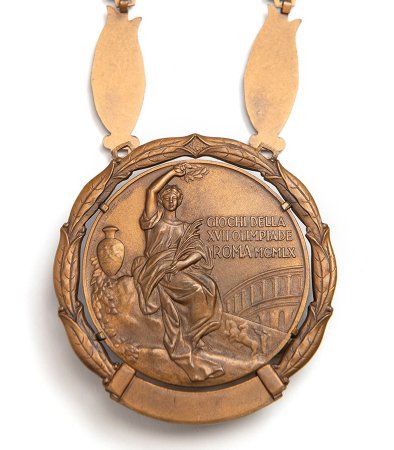Description:
Olympic Games Rome 1960 Medals
Front: Victorious athlete with palm branch carried by jubilant athletes with stadium in background. A bar inscribed with the name of the sport in Italian was used in adherence to Rule 41 instituted in June 1956.
Back: Seated Nike, goddess of victory holding laureal wreath and palm branch with Colosseum in background and vase at left. To the right of Victory, "Giochi Della XVII Olipiade Roma MCMIX."
Ribbon: Bronze metal chain in shape of wreath of olive leaves
Designer: Giuseppe Cassioli
Mint: Artistice Fiorentini, Florence, Italy
Front: Victorious athlete with palm branch carried by jubilant athletes with stadium in background. A bar inscribed with the name of the sport in Italian was used in adherence to Rule 41 instituted in June 1956.
Back: Seated Nike, goddess of victory holding laureal wreath and palm branch with Colosseum in background and vase at left. To the right of Victory, "Giochi Della XVII Olipiade Roma MCMIX."
Ribbon: Bronze metal chain in shape of wreath of olive leaves
Designer: Giuseppe Cassioli
Mint: Artistice Fiorentini, Florence, Italy
Title:
Rome 1960
Fun fact(s):
Cassius Clay, more commonly known as Muhammad Ali, won the men's light-heavyweight gold medal thus beginning the career of one of the greatest boxers of all time. In 1996, after developing post-traumatic Parkinsonism, Ali lit the Olympic flame at the Atlanta Olympic Games.
More Info:
The side with Victory is usually identified as the front; this is not the case with the Rome 1960 medals. Sport inscriptions and chain face appear on the victorious athlete side making this side the front and the side with Victory the back.
The medal was set in a bronze wreath of olive leaves thus making it the first time a medal was created to drape around the athtlete's neck.
The medal was set in a bronze wreath of olive leaves thus making it the first time a medal was created to drape around the athtlete's neck.
Click to Enlarge
